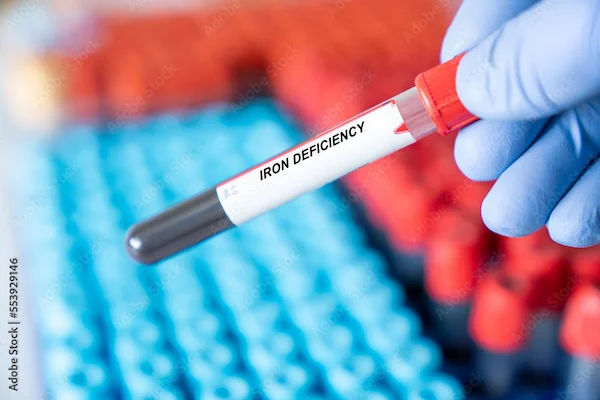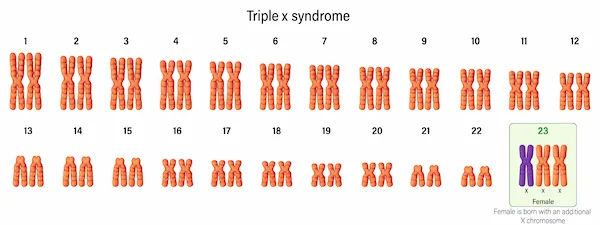Contraction Stress Test Overview and Procedure
Learn what a Contraction Stress Test (CST) is, why it’s done during pregnancy, how it works, what the results mean, and how to prepare. Ensure your baby’s well-being with expert guidance.


Pregnancy is a beautiful journey, but it also requires careful monitoring to ensure the well-being of both the mother and the baby. One such test that helps assess the baby’s health during pregnancy is the Contraction Stress Test (CST). If your doctor has recommended this test, you might have questions about what it is, why it’s needed, and what to expect. Let’s break it down in simple terms.
What is a Contraction Stress Test (CST)?
A Contraction Stress Test (CST) is a prenatal test that checks how well your baby responds to mild contractions of the uterus. The goal is to see if the baby’s heart rate remains stable during contractions, which helps doctors determine if the baby is getting enough oxygen and is healthy enough for labor.
This test is usually done in the third trimester, especially if there are concerns about the baby’s well-being, such as:
• Reduced fetal movements
• High-risk pregnancy (diabetes, high blood pressure, etc.)
• Previous pregnancy complications
• Suspected growth restriction in the baby
How Does the Test Work?
The CST mimics mild contractions (similar to early labor) to see how the baby’s heart rate reacts. There are two ways to perform the test:
1. Natural Contractions (Spontaneous CST): If you’re already having mild contractions, the doctor will monitor them along with the baby’s heartbeat.
2. Induced Contractions (Nipple Stimulation or Oxytocin):
• Nipple Stimulation: Gently rubbing the nipples can trigger contractions naturally by releasing oxytocin (a hormone that causes contractions).
• Oxytocin (Pitocin) Administration: If natural methods don’t work, a small dose of oxytocin may be given through an IV to induce contractions.
What Happens During the Test?
Here’s a step-by-step breakdown of what to expect:
1. Preparation:
• You’ll lie down on an exam table, slightly tilted to the left to improve blood flow.
• Two belts with sensors will be placed on your belly—one to monitor the baby’s heartbeat (fetal heart rate monitor) and another to track contractions.
2. Baseline Monitoring:
• The doctor will first check the baby’s heart rate and movements for about 20-30 minutes.
3. Inducing Contractions (if needed):
• If you’re not having contractions naturally, the doctor may use nipple stimulation or oxytocin.
• The goal is to have three contractions in 10 minutes, each lasting about 40-60 seconds.
Consult Top General Practitioner
4. Monitoring the Baby’s Response:
• The baby’s heart rate is closely watched during and after contractions.
• A healthy baby’s heart rate should recover quickly after a contraction.
5. Test Completion:
• The test usually takes about 90 minutes, depending on how quickly contractions occur.
• Once enough data is collected, the sensors are removed, and your doctor will discuss the results.
Understanding the Results
The test results are classified as:
• Negative (Normal): The baby’s heart rate stays stable during contractions, meaning they are handling stress well.
• Positive (Abnormal): The baby’s heart rate drops after contractions, which may indicate a lack of oxygen (fetal distress). Further tests or early delivery may be needed.
• Unsatisfactory: If contractions aren’t strong enough or the baby’s heart rate isn’t clearly recorded, the test may need to be repeated.
Is the Test Safe?
Yes, the CST is generally safe when performed under medical supervision. However, in rare cases, it may cause:
• Stronger contractions than expected
• Premature labor (very rare)
• Temporary discomfort
Your doctor will monitor you closely to minimize risks.
How to Prepare for the Test?
• Eat a light meal before the test to keep your energy up.
• Empty your bladder for comfort.
• Wear loose, comfortable clothing for easy monitoring.
• Stay relaxed—stress can affect the results.
After the Test: What’s Next?
• If the results are normal, you may continue with routine check-ups.
• If there are concerns, your doctor may recommend additional tests like a Biophysical Profile (BPP) or Non-Stress Test (NST).
• In some cases, early delivery may be advised if the baby is in distress.
Get Your Symptoms Checked now.
Tips for a Healthy Pregnancy
While the CST helps monitor your baby’s health, here are some general tips for a smooth pregnancy:
• Stay hydrated – Drink plenty of water.
• Eat a balanced diet – Include fruits, vegetables, and proteins.
• Monitor baby’s movements – Report any decrease in activity.
• Avoid stress – Practice relaxation techniques like deep breathing.
• Attend all prenatal visits – Regular check-ups are crucial.
When to Seek Immediate Help?
Call your doctor right away if you notice:
• Severe abdominal pain
• Vaginal bleeding
• No fetal movements for long periods
• Leaking amniotic fluid
Need a Contraction Stress Test? Book with Apollo 24|7
If your doctor has recommended a CST or if you have concerns about your baby’s well-being, Apollo 24|7 offers expert prenatal care with advanced fetal monitoring. You can easily book a consultation or schedule a test from the comfort of your home.
Call now or visit the Apollo 24|7 app to connect with a specialist.
Final Thoughts
The Contraction Stress Test is a valuable tool to ensure your baby is healthy and ready for labor. While it may sound a bit intimidating, it’s a routine and safe procedure that provides important insights. Always discuss any concerns with your doctor.
Consult Top General Practitioner
Consult Top General Practitioner
Dr. Sahana B
General Practitioner
3 Years • MBBS
Koppal
Khushi multi-speciality hospital, Koppal

Dr. Rajib Ghose
General Practitioner
25 Years • MBBS
East Midnapore
VIVEKANANDA SEBA SADAN, East Midnapore
Dr. Gaddam Manoj
General Practitioner
1 Years • MBBS
Hyderabad
Aaradhya clinic, Hyderabad
Dr. Charan P
General Practitioner
1 Years • MBBS
Hyderabad
Apollo 247 Virtual Clinic, Hyderabad

Dr. Suvadeep Sen
Critical Care Specialist
12 Years • MBBS, MD, FNB (CRITICAL CARE MEDICINE), EDIC
Mumbai
Apollo Hospitals CBD Belapur, Mumbai
Consult Top General Practitioner
Dr. Sahana B
General Practitioner
3 Years • MBBS
Koppal
Khushi multi-speciality hospital, Koppal

Dr. Rajib Ghose
General Practitioner
25 Years • MBBS
East Midnapore
VIVEKANANDA SEBA SADAN, East Midnapore
Dr. Gaddam Manoj
General Practitioner
1 Years • MBBS
Hyderabad
Aaradhya clinic, Hyderabad
Dr. Charan P
General Practitioner
1 Years • MBBS
Hyderabad
Apollo 247 Virtual Clinic, Hyderabad

Dr. Suvadeep Sen
Critical Care Specialist
12 Years • MBBS, MD, FNB (CRITICAL CARE MEDICINE), EDIC
Mumbai
Apollo Hospitals CBD Belapur, Mumbai





